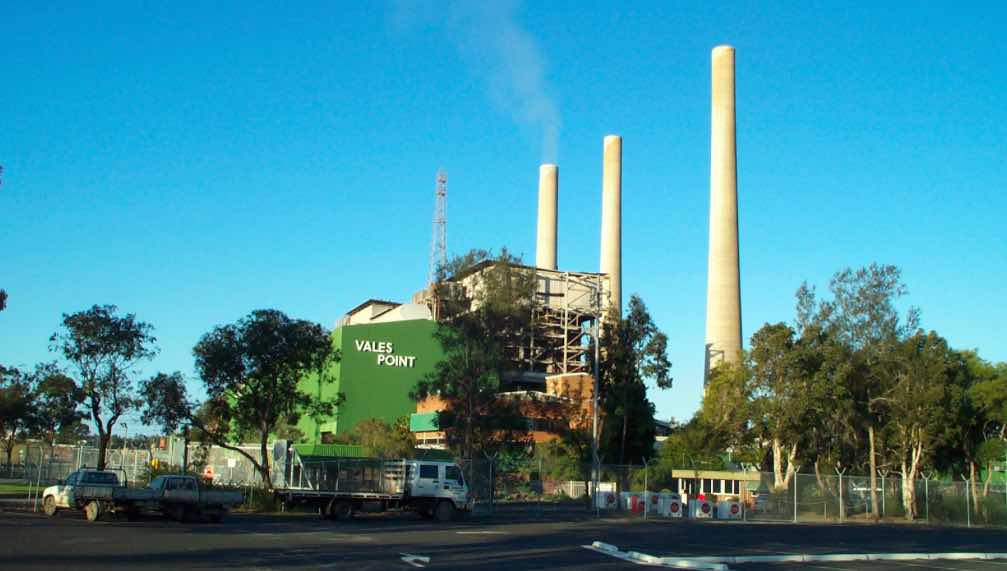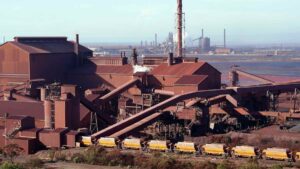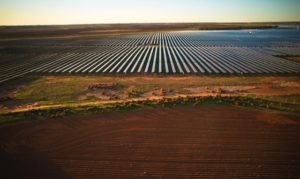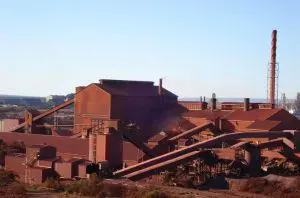The owners of the Vales Point coal generator on Lake Macquarie – who bought the ageing plant from the NSW government for just $1 million – are now considering building a 45MW solar farm on the plant’s former ash dump and landfill in yet another sign of the unstoppable renewable energy transition.
Delta Electricity have flagged the proposal on their web-site and are in discussions with the local council. The proposal suggests the solar farm could be built at a cost of just $30 million – which sounds very cheap considering all solar farms to date have cost at least $1 million per megawatt, and most around $1.5 million/MW.
“Delta is currently investigating an option for the establishment of a utility-scale solar field on approximately 70 hectares of this rehabilitated land,” it says. “An initial solar capacity assessment has found that up to 45MW of renewable energy could be generated.”
Vales Point was bought by energy entrepreneur Trevor St Baker in 2015 for a slap-down price of just $1 million. He has made bags of money since, given the recent jump in wholesale prices, although any profit calculations should include future rehabilitation costs once the plant is closed.
St Baker has also invested in new solar technology called Printed Energy, which is looking at ways to “print” battery storage as well as solar panels.
If the decision on the Vales Point solar farm goes ahead, it is likely to be completed in 2018. It is yet another development that signals the transformation of old coal communities into renewable energy hubs.
In Queensland, the old coal plant at Collinsville is now surrounded by up to a dozen of large-scale solar projects under construction or about to start, while in Port Augusta, the 220MW Bungala solar project, the 215MW Lincoln Gap wind farm, and the 150MW Aurora solar tower project are all building or about to build.
“It’s another big signal that old coal-fired power stations and the utility owners are changing for the better,” executive director of the Total Environment Centre Jeff Angel told the Newcastle Herald earlier this week.
“I’m sure residents of Lake Macquarie and the Central Coast will feel good about their region entering the 21st century renewable energy era.”
“If you shut down coal tomorrow, I can guarantee the lights will go out. There is still a role for coal for the foreseeable future,” Gurney told the newspaper.
However, Vales point struggled on many occasions during last summer’s heat-wave, obliged to reduce capacity at various times because of equipment faults, and concerns about the water temperatures in the neighbouring lake, which is used for cooling.
The Newcastle Herald said that Delta has met with Lake Macquarie and Central Coast councils over the proposal, which will go on public exhibition later this year.











